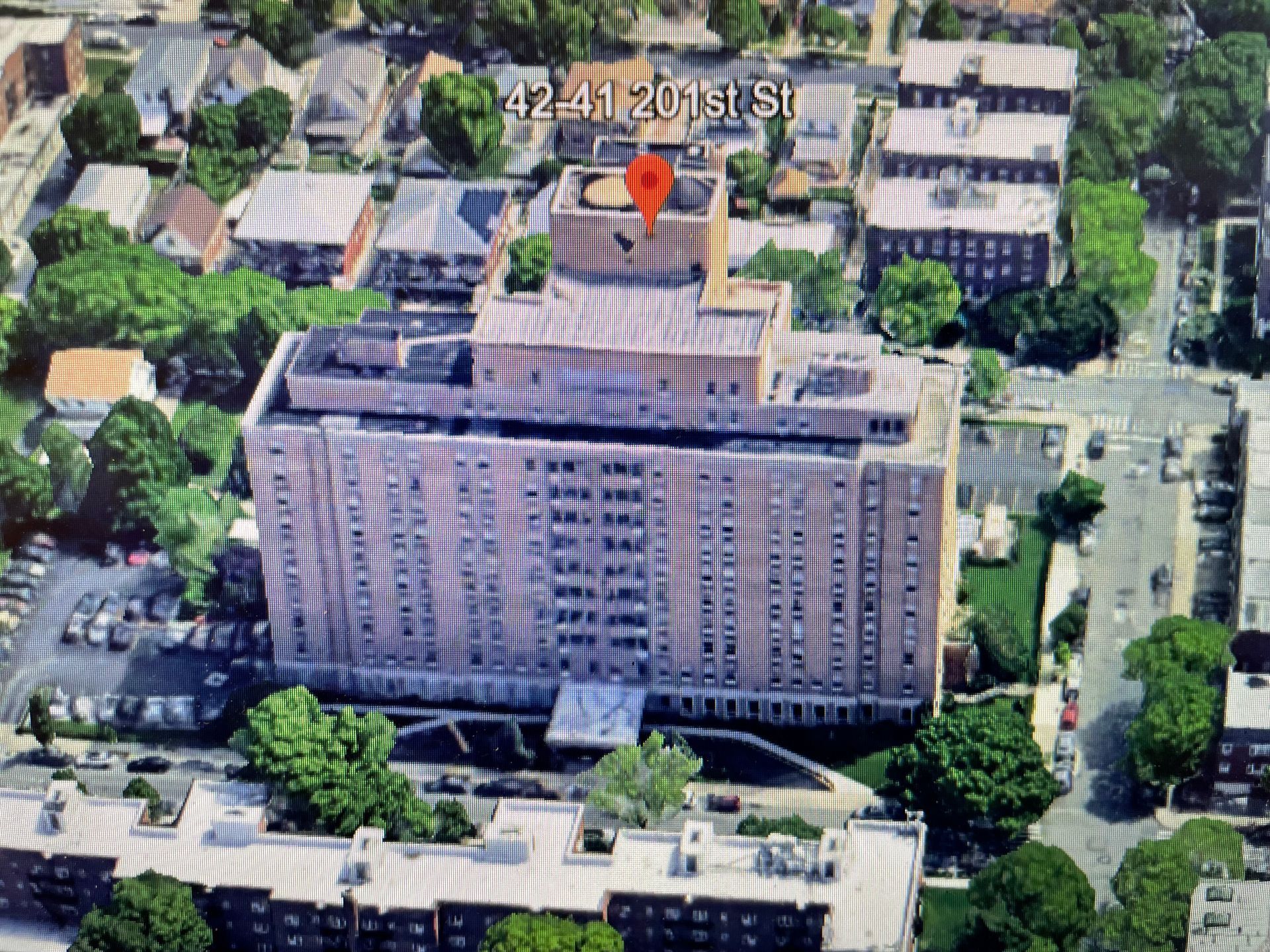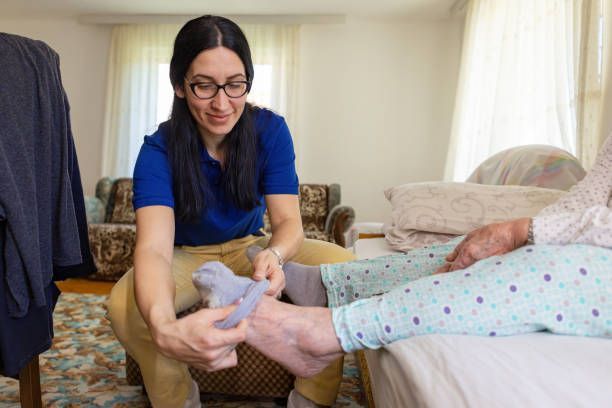Does a Person with Dementia Know They Are Confused?
Does A Person With Dementia Know They Are Confused?
7 Day Home Care brings exceptional value through our extensive experience in providing in-home dementia care across Manhattan, Queens, Brooklyn, and Long Island, New York. Our highly trained caregivers are skilled in managing the complex and evolving needs of individuals with dementia, ensuring they receive personalized, compassionate care in the comfort of their own homes. We prioritize creating a safe, supportive environment that promotes the well-being and dignity of our clients, utilizing proven techniques to manage symptoms and enhance quality of life. With a deep understanding of the emotional and practical challenges faced by families, we offer reliable and continuous support, making us a trusted partner in navigating the journey of dementia care.
7 Day Home Care is licensed by the New York State Department of Health to provide in-home care services in Manhattan, Queens, Brooklyn, Nassau County, and Suffolk County, New York.

Are You Searching for a Home Care Agency Near Me
with Experience in Dementia Care at Home?
Dementia is a complex and multifaceted condition that affects millions of people worldwide. As a leading provider of specialized dementia in-home care in Manhattan, Queens, Brooklyn, and Long Island, New York, 7 Day Home Care is committed to understanding and addressing the challenges faced by individuals with dementia and their families. One common question that arises is whether a person with dementia is aware of their confusion. The answer to this question is nuanced and depends on various factors, including the stage of dementia, the individual's cognitive reserve, and the support systems in place.
Understanding Dementia and Confusion
Dementia is an umbrella term used to describe a range of cognitive impairments that interfere with daily functioning. It encompasses various conditions, including Alzheimer's disease, vascular dementia, Lewy body dementia, and frontotemporal dementia. One of the hallmark symptoms of dementia is confusion, which can manifest in several ways, such as memory loss, disorientation, difficulty with language, and impaired judgment.
Confusion in dementia patients can lead to a myriad of challenges. It can cause anxiety, frustration, and fear, not only for the person experiencing it but also for their caregivers and loved ones. Recognizing whether individuals with dementia are aware of their confusion is crucial for providing effective care and support.
Awareness of Confusion in Early Stages of Dementia
In the early stages of dementia, individuals often retain a significant level of self-awareness. They may recognize that their memory is not as sharp as it used to be or that they are having difficulty with tasks that were once easy. This awareness can be distressing and may lead to feelings of frustration, embarrassment, or depression.
During this stage, people with dementia might be able to articulate their confusion and seek help from family members or caregivers. They may say things like, "I feel like I'm losing my mind," or "I can't remember things like I used to." This level of insight allows caregivers to provide targeted support and reassurance, helping to mitigate the emotional impact of their confusion.
Middle Stages of Dementia and Diminishing Awareness
As dementia progresses into the middle stages, the individual's cognitive abilities continue to decline. During this period, the person's awareness of their confusion may diminish. They might not fully understand the extent of their cognitive impairment, and their ability to recognize their confusion becomes more sporadic. This lack of awareness can be a protective mechanism, shielding them from the distress that comes with realizing their cognitive decline.
In the middle stages, individuals with dementia might still have moments of clarity where they recognize their confusion, but these moments become less frequent. They might experience "cognitive fluctuations," where their awareness and cognitive abilities vary throughout the day. This variability can be confusing for caregivers, who may struggle to anticipate and respond to the person's needs.
Late Stages of Dementia and Lack of Awareness
In the late stages of dementia, the individual's cognitive function deteriorates significantly. At this point, the person is unlikely to have any awareness of their confusion. The severe cognitive impairments make it difficult for them to comprehend their situation or articulate their thoughts and feelings. Instead, they may become more dependent on their caregivers for all aspects of daily living.
During the late stages, the primary focus of care shifts to providing comfort and ensuring the individual's safety and well-being. Caregivers must be attuned to non-verbal cues and changes in behavior, as the person with dementia may no longer be able to communicate their needs or discomfort effectively.
Factors Influencing Awareness of Confusion
Several factors influence whether a person with dementia is aware of their confusion. These include:
Cognitive Reserve
Cognitive reserve refers to the brain's ability to compensate for damage and maintain function. Individuals with higher cognitive reserve may retain self-awareness for longer periods, even as dementia progresses. Cognitive reserve is influenced by factors such as education, occupation, and engagement in mentally stimulating activities throughout life.
Type of Dementia
Different types of dementia can affect awareness of confusion in various ways. For example, individuals with Alzheimer's disease may lose awareness gradually, while those with frontotemporal dementia may experience significant changes in behavior and personality early on, affecting their self-awareness.
Emotional and Psychological Factors
Emotional and psychological factors also play a role in a person's awareness of their confusion. Anxiety, depression, and stress can exacerbate confusion and impair self-awareness. Conversely, a supportive and reassuring environment can help individuals with dementia maintain a higher level of awareness and emotional stability.
Support Systems
The presence of strong support systems, including family, friends, and professional caregivers, can significantly impact a person's awareness of their confusion. Supportive caregivers who provide consistent, compassionate care can help individuals with dementia feel more secure and less distressed by their confusion.
The Role of Caregivers in Managing Confusion
Caregivers play a critical role in managing confusion in individuals with dementia. Their approach to care can significantly influence the person's quality of life and emotional well-being. Here are some strategies caregivers can use to support individuals with dementia:
Providing Reassurance and Comfort
Offering reassurance and comfort is essential for individuals experiencing confusion. Simple gestures such as holding their hand, speaking in a calm and soothing tone, and providing gentle reminders can help alleviate anxiety and fear.
Establishing Routines
Consistent routines provide structure and predictability, which can help reduce confusion. Caregivers should establish daily routines for activities such as meals, bathing, and bedtime to create a sense of stability.
Using Clear and Simple Communication
Clear and simple communication is vital when interacting with someone who has dementia. Caregivers should use short sentences, avoid complex instructions, and repeat information as needed. Non-verbal communication, such as facial expressions and gestures, can also be effective.
Creating a Safe Environment
A safe environment minimizes the risk of accidents and injuries, which can be particularly important for individuals with dementia who may wander or become disoriented. Caregivers should remove potential hazards, use safety locks, and ensure that the living space is well-lit and easy to navigate.
Encouraging Engagement and Stimulation
Engaging activities can help individuals with dementia maintain cognitive function and reduce confusion. Caregivers should encourage participation in activities that the person enjoys and finds meaningful, such as listening to music, gardening, or doing puzzles.
Seeking Professional Support
Professional support from specialized dementia care providers, such as 7 Day Home Care, can enhance the quality of care and provide caregivers with valuable resources and guidance. Professional caregivers are trained to manage the unique challenges of dementia and can offer respite care, giving family caregivers a much-needed break.
Understanding whether a person with dementia knows they are confused is a complex issue that depends on various factors, including the stage of dementia, cognitive reserve, type of dementia, and the support systems in place. In the early stages, individuals may retain a significant level of self-awareness, while in the middle and late stages, this awareness diminishes.
At 7 Day Home Care, we recognize the importance of providing compassionate, specialized dementia care that addresses the unique needs of each individual. Our team of professional caregivers is dedicated to ensuring the safety, comfort, and well-being of our clients, while also offering support and respite for their families. By fostering a supportive and understanding environment, we can help individuals with dementia live with dignity and as much independence as possible, even in the face of confusion and cognitive decline.
If you or a loved one is living with dementia and in need of specialized in-home care, please contact 7 Day Home Care at 516-408-0034 to learn more about our services and how we can support you in Manhattan, Queens, Brooklyn, and Long Island, New York. Together, we can navigate the challenges of dementia with compassion and expertise, ensuring a higher quality of life for those affected.
Brian Callahan
7 Day Home Care










